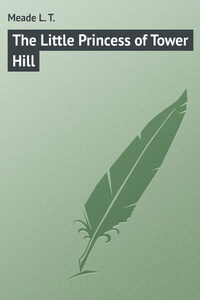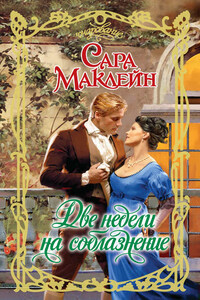CHAPTER I.
HER VERY YOUNG DAYS
All the other children who knew her thought Maggie a wonderfully fortunate little girl. She was sometimes spoken about as the "Little Princess of Tower Hill," for Tower Hill was the name of her father's place, and Maggie was his only child. The children in the village close by spoke of her with great respect, and looked at her with a good deal of longing and also no slight degree of envy, for while they had to run about in darned and shabby frocks, Maggie could wear the gayest and daintiest little dresses, and while they had to trudge sometimes even on little bare feet, Maggie could sit by her mother's side and be carried rapidly over the ground in a most delicious and luxurious carriage, or, better still, she might ride on her white pony Snowball, followed by a groom. The poor children envied Maggie, and admired her vastly, and the children of those people who, compared to Sir John Ascot, Maggie's father, might be considered neither rich nor poor, also thought her one of the most fortunate little girls in existence. Maggie was nearly eight years old, and from her very earliest days there had been a great fuss made about her. At the time of her birth bonfires had been lit, and oxen killed and roasted whole to be given away to the poor people, and Sir John and Lady Ascot did not seem at all disappointed at their baby being a girl instead of a son and heir to the old title and the fine old place. There was a most extraordinary fuss made over Maggie while she was a baby; her mother was never tired of visiting her grand nurseries and watching her as she lay asleep, or smiling at her and kissing her when she opened her big, bright blue eyes. The eyes in question were very pretty, so also was the little face, and the father and mother quite thought that there never was such a baby as their little Maggie. They had christened her Margarita Henrietta Villiers; these were all old family names, and very suitable to the child of proud old county folk. At least so Sir John thought, and his pretty young wife agreed with him, and she gave the servants strict directions that the baby was to be called Miss Margarita, and that the name was on no account whatever to be abridged or altered. This was very fine as long as the baby could only coo or make little inarticulate sounds, but that will of her own, which from the earliest minutes of her existence Maggie had manifested, came fully into play as soon as she found the full use of her tongue. She would call herself Mag-Mag, and would not answer to Margarita, or pay the smallest heed to any summons which came to her in this guise, and so, simply because they could not help themselves, Sir John and Lady Ascot had almost virtually to rechristen their little daughter, and before she was two years old Maggie was the only name by which she was known.
Years passed, and no other baby came to Tower Hill, and every year Maggie became of a little more importance, and was made a little more fuss about, and as a natural consequence was a little more spoiled. She was a very pretty child; her hair was wavy and curly, and exquisitely fine; in its darkest parts it was nut-brown, but round her temples, and wherever the light fell on it, it was shaded off to the brightest gold; her eyes were large, and blue, and well open; her cheeks were pink, her lips rosy, and she had a saucy, never-me-care look, which her father and mother and the visitors who saw her thought wonderfully charming, but which now and then her nurse and her patient governess, Miss Grey, objected to. All things that money could buy, and all things that love could devise, were lavished at Maggie's feet. Her smallest wishes were instantly granted; the most expensive toys were purchased for her; the most valuable presents were given to her day by day. "Surely," said the village children, "there can be no happier little girl in all the wide, wide world than our little princess. If there is a child who lives always, every day, in a fairy-land, it is Miss Maggie Ascot."
Maggie had two large nurseries to play in, and two nurses to wait upon her, and when she was seven years old a certain gentle-faced, kind-hearted Miss Grey arrived at Tower Hill to superintend the little girl's education. Then a schoolroom was added to her suit of apartments, and then also the troubles of her small life began. Hitherto everything had gone for Maggie Ascot with such smoothness and regularity, with such an eager desire on the part of every one around her not only to grant her wishes, but almost to anticipate them, that although nurse, and especially Grace, the under-nurse, strongly suspected that Miss Maggie had a temper of her own, yet certainly Sir John and Lady Ascot only considered her a somewhat daring, slightly self-willed, but altogether charming little girl.
With the advent, however, of Miss Grey things were different. Maggie had taken the greatest delight in the furnishing and arranging of her schoolroom; she had laughed and clapped her hands with glee when she saw the pretty book-shelves being put up, and the gayly bound books arranged on them; and when Miss Grey herself arrived, Maggie had fallen quite in love with her, and had sat on her knee, and listened to her charming stories, and in fact for the first day or two would scarcely leave her new friend's side; but when lessons commenced, Maggie began to alter her mind about Miss Grey. That young lady was as firm as she was gentle, and she insisted not only on her little pupil obeying her, but also on her staying still and applying herself to her new duties for at least two hours out of every day. Long before a quarter of the first two hours had expired, Maggie had expressed herself tired of learning to read, and had announced, with her usual charming frankness, that she now intended to run into the garden and pick some roses.














